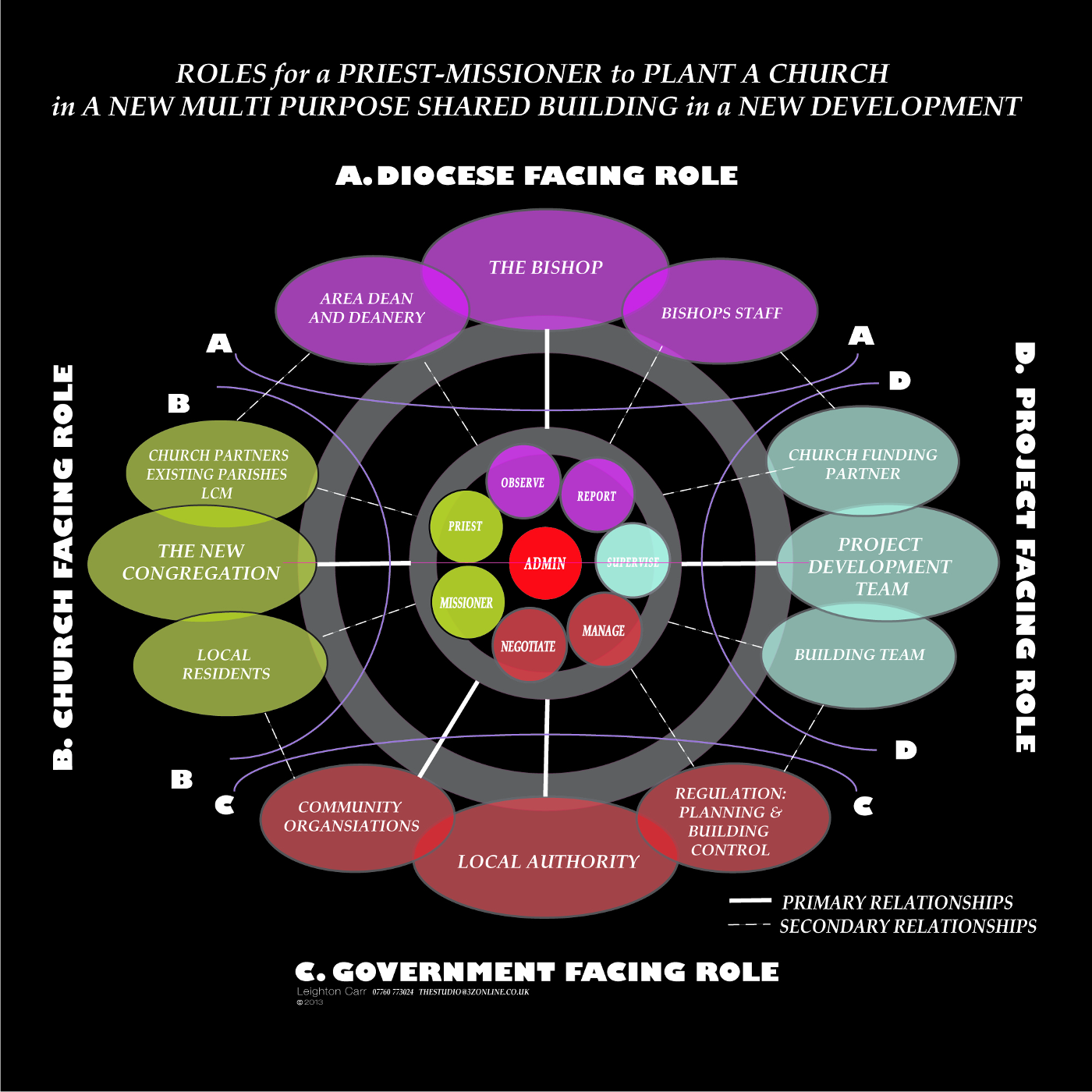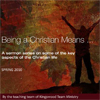Does anyone else worry in their organisation that the dominance of programmes may hide the absence of a heartbeat?\r\n\r\nProgrammes are imposed from the outside; heartbeats come from – the heart.\r\n\r\nProgrammes bring rotas; heartbeats bring rhythm.\r\n\r\nProgrammes can be avoided; if heartbeats are avoided …
Holy Trinity and St Stephen’s
These links connect to some recent projects carried out in church mission, ministry and development, and some links to creative projects in arts or design.\r\n\r\nThe first four links on the top row connect to some strategic work, thinking creatively about some contemporary church issues. The first is a church plant proposal for Bristol Harbourside described by Professor Eddie Gibbs of Fuller Seminary as “one of the best proposals for church planting I have seen – a clear and transferable model”. The links on the second row connect to larger projects in urban theology and mission, including a simple teaching guide ‘Being a Christian Means …’\r\n\r\nTaken together these works form part of a larger project to find ways for the church to create realistic strategies for mission in cities.\r\n\r\nThe icons on the bottom row connect to images of different kinds of work, from writing to art to building transformations.\r\n
From Maintenance to Mission
I took a course once called ‘From Maintenance to Mission’. It was about how to move an organisation out of a maintenance mentality into new focus on mission.\r\n\r\nThat particular course was about churches, but looking around the businesses I see and work with it could have applied easily to almost any organisation. For some reason the complicated network of relationships both within organisations and between organisations and their contexts seem to bring a paralysis in innovative action and an uneven distribution of power.\r\n\r\nThere are some obvious reasons behind this but for now the question is, how do we move our organisations from Maintenance to Mission?\r\n\r\nHere’s one thought: become Innovative Learners\r\n\r\nWarren Bennis suggests that the way organisations learn is essential to the way they behave. He distinguishes between Maintenance Learning and Innovative Learning.\r\n\r\nMaintenance learning is a necessary but insufficient (and institutionalized) way of ‘…comparing current performance only with past performance, not with what might have been or what is yet to be.’ And so corrective action in organisations is usually designed to deal with perceived weaknesses and failures, and not to build on strengths. The learning is limited to what is necessary to maintain the existing organisation.\r\n\r\nI know many churches like this.\r\n\r\nInnovative learning is also necessary but difficult and hardly ever found. Innovative learning is the means by which an organisation can prepare for the future, working in anticipation of uncertainties that lie ahead. Bennis puts it this way: ‘Innovative learning deals with emerging issues – issues that may be unique, so that there is no opportunity to learn by trial and error; issues for which solutions are not known; and issues whose very formulation may be a matter for controversy and doubt .\r\n\r\nI know few churches like this.\r\n\r\nInnovative Learning was a phase coined in the study ‘No Limits to Learning’, sponsored by the Club of Rome. Bennis quotes:\r\n\r\n
“…for long-term survival, particularly in times of turbulence, change or discontinuity, another type of learning is even more essential [than maintenance Learning]. it is the type of learning that can bring change, renewal, restructuring, and problem formulation – and which we have called Innovative Learning.”For my part, I’m restless when I’m not fully engaged in some aspect of Innovative Learning, but I am aware that it can tire people out.\r\n\r\nMy answer to this? \r\n\r\nBe careful to make the distinction between the Organisation and the Community it frames, and commit deeply to the Community when innovating in the Organisation.\r\n\r\n‘Good leaders make people feel they’re at the very heart of things, not at the periphery.’ Warren Bennis.
The key skills of a priest-missioner
A couple of years ago a friend applied for a post in a new urban village in east London. The role was headlined as a priest-missioner, working to establish a new church community in the area.\r\n\r\nBut the headline title of Priest-Missioner was only part of the requirement. The relationship with the Diocese was not typical, the relationships with key stakeholders were complex. And on top of this there was no church building and no permanent place to live.\r\n\r\nSo it was complicated, and I think the key skill required was not primarily in theology or mission, but in … administration.\r\n\r\nMy diagram of the post looked like this (the full version can be seen here…)\r\n\r\n
Starting the church
I’ve heard debates about when the Church began.\r\n\r\nWas it when Jesus breathed on the disciples in a room in Jerusalem and said receive the Holy Spirit?\r\n\r\nOr was it on the day of Pentecost, when Jesus breathed on the disciples in a room in Jerusalem in a more dramatic way and 3,000 people became followers?\r\n\r\nI’ve never heard anyone say that Peter’s first pronouncement to his fellow disciples was the start of the church, but in some ways it had all the hallmarks of a functioning church.\r\n\r\nPeter’s first recorded discourse concerns the appointment of a new member of the ‘senior leadership team’, the Apostles. He stands and recounts the disappointment of Judas, framing it in scriptural terms, and drawing the conclusion that led to Matthias being appointed as the 12th Apostle.\r\n\r\nOne observation we can make is that by this time, between Jesus leaving and the Spirit coming, there was a strong sense of Assignment and Designation.\r\n\r\nPeter says that Judas had an ‘Assigned place’ in the ministry of Jesus, and his replacement has to be someone ‘Designated…as a witness to the resurrection’.\r\n\r\nThe Administration of the Designated calling of individuals to an Assignment to serve the community…\r\n\r\n… sounds like a church to me.
The Presence of God
Richard Rohr makes a good point when he says …\r\n\r\n”We cannot attain the presence of God.\r\nWe’re already totally in the presence of God.\r\nWhat’s absent is … awareness“
‘The New Competence’ of Leadership
In the early 1980s, as the leadership movement was starting to gather momentum, Donald N Michael identified these five abilities for the agile leader in a fast changing new era. He called them ‘the new competence’. They are:\r\n
- \r\n
- Acknowledging and sharing uncertainty
- Embracing error
- Responding to the future
- Becoming interpersonally competent (i.e. listening, nurturing, coping with value conflicts etc.)
- Gaining self-knowledge.
\r\n
\r\n
\r\n
\r\n
\r\n
\r\nMarking each of these out of 5, I wonder how I’m doing?\r\n\r\nI think, better than halfway, not quite three quarters.\r\n\r\nWork to be done.
The view
Music and Song
Creative or not …
… do some creative thinking.
\r\n












